Lecture Series
SRM Lecture Series
The SRM Lecture Series is a free, live webinar offered on the 2nd Wednesday of every month from 2-3pm EST. The lectures are designed for providers working with Veterans at risk for suicide. They cover a broad range of suicide prevention topics including best practices in suicide risk assessment, risk stratification, cultural considerations for suicide prevention, and postvention practices.
Accreditations
JA IPCE, ACCME, ACCME-NP, ACPE, ANCC, APA, ASWB, NYSED-P, ASWB, NBCC, AOTA
Credit/hours
1-hour CE only available for those who:
- Pre-register and attend the live lecture
- Take the recorded course in TMS or TRAIN
Did you know…
Quarterly CPG Spotlight topics will be offered as part of the Suicide Risk Management (SRM) Lecture Series!
SRM lectures are listed below. The default filter is set show all the lectures. If you want to view specific ones based on year, presenter, or category, use the options below to filter the content as desired.
Suicide Risk Stratification Updates
August 13 2025 2:00 ET Bridget Matarazzo, PsyD
August’s topic looks at how risk stratification, when completed as part of a comprehensive assessment, can facilitate clinical impressions regarding suicide risk and aid in identifying risk mitigation strategies and treatment decisions.
This presentation will explore acute and chronic risks at all three levels of severity (low, intermediate, and high). It will also highlight clinical suicide risk stratification tools and training that providers can utilize to inform safety needs and clinical care.
Following this live lecture, participants will be able to:
- Identify benefits of suicide risk stratification once risk has been identified.
- Describe importance of assessing and evaluating both acute and chronic risk.
- Examine differences between low, intermediate and high risk at acute and chronic risk levels and how that informs best risk mitigation interventions.
Bridget Matarazzo, PsyD
Dr. Matarazzo is the Director of Clinical Services at VA’s Rocky Mountain MIRECC for Suicide Prevention. She is Co-Director of VA’s Suicide Risk Management Consultation Program and leads a team that provides implementation support for multiple national VA suicide prevention programs, such as REACH VET and the VA Suicide Risk Identification Strategy. She is also an Associate Professor in the Department of Psychiatry at the University of Colorado, School of Medicine.
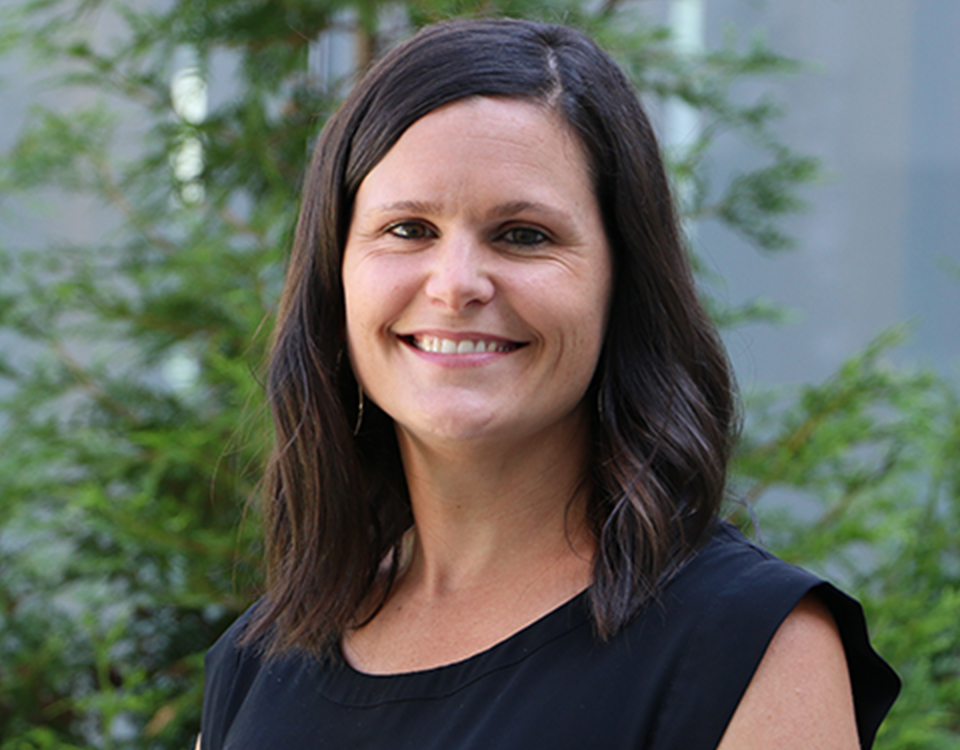
Tailored Suicide Risk and Prevention Consideration for LGBTQ+ Veterans
July 9 2025 2:00 ET Ashley M. Griffith, Ph.D. and Julie A. Kittle, Ph.D.
July’s topic looks at how LGBTQ+ individuals face a higher risk of suicidal ideation and self-directed violence compared to their non-LGBTQ+ peers. This presentation will explore the prevalence of suicide risk and firearm access among LGBTQ+ Veterans, along with key factors influencing these risks. It will also provide practical guidance on suicide prevention strategies, including tailored approaches to lethal means safety for LGBTQ+ Veterans.
Don’t miss this opportunity to expand your knowledge and enhance the care you provide to those who have served.
Following this live lecture, participants will be able to:
- Discuss the prevalence of suicidal self-directed violence among LBGTQ+ Veterans.
- Elucidate knowledge of methods of suicide and lethal means safety considerations for LGBTQ+ Veterans.
- Describe considerations for a patient-centered approach to suicide prevention for LGBTQ+ Veterans.
Julie A. Kittel-Moseley, Ph.D.
Dr. Kittel-Moseley is an epidemiologist and health science specialist at the Rocky Mountain Mental Illness Research, Education and Clinical Center (MIRECC) for Suicide Prevention with over 10 years of experience in suicide prevention research and research with Veterans. Their research primarily focuses on identifying non-mental health risk factors for suicide, particularly suicide prevention among those with serious medical conditions, such as cancer, as well as sexual and gender-diverse Veterans. Identifying these risk factors can help to inform upstream suicide prevention efforts.
Ashley M. Griffith, Ph.D.
Dr. Griffith is an Advanced Psychology Postdoctoral Fellow who joined the Rocky Mountain MIRECC for Suicide Prevention in August 2022 after completing her Ph.D. in Clinical Health Psychology at East Carolina University. Her research interests have centered around understanding barriers and facilitators to accessing mental health care among service members and Veterans. As a member of the Advancing Suicide Prevention for undeRserved vEterans (ASPIRE) Lab, she is exploring barriers and facilitators to engaging in suicide prevention strategies among lesbian, gay, bisexual, transgender, and queer+ (LGBTQ+) Veterans, with an emphasis on transgender and gender diverse Veterans. Other interests include how the impact of rurality, region, and safety behaviors influence firearm ownership, suicide risk, and prevention.
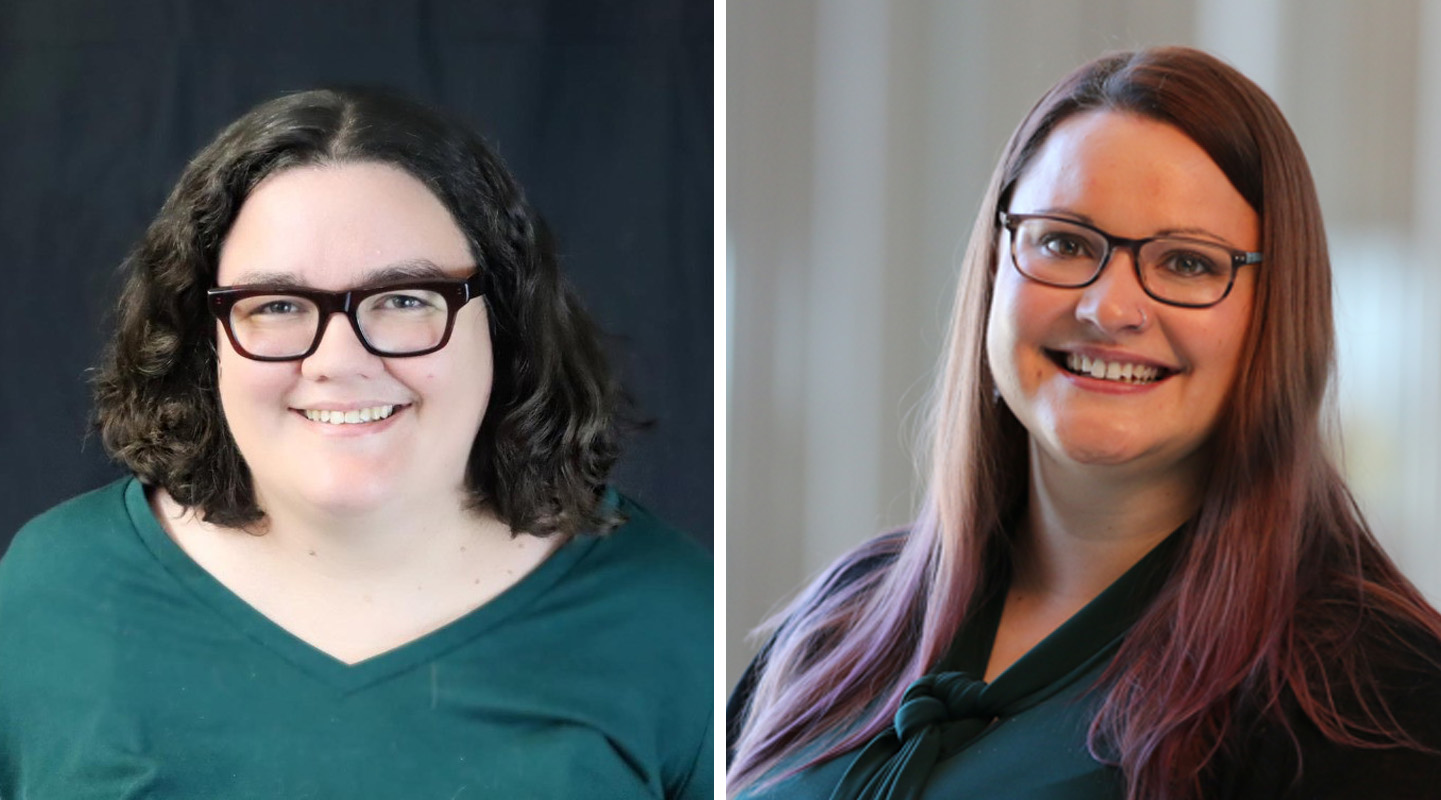
Therapeutic Suicide Risk Management for Veterans with Chronic Pain
June 11 2025 2:00 ET Suzanne McGarity, Ph.D.
Chronic pain is a significant risk factor for suicide among Veterans. As pain management spans multiple care settings in VA, providers play a critical role in identifying and addressing suicide risk. This session will provide practical strategies for integrating suicide prevention into pain care, helping you confidently apply best practices and connect Veterans to the services and resources they need.
Don’t miss this opportunity to enhance your clinical approach and improve outcomes for Veterans living with pain while earning free CEUs.
Following this live lecture, participants will be able to:
- Describe the role of pain as a potential driver of suicide risk in the Veteran population.
- Demonstrate increased knowledge of and ability to engage with current effective practices and evidence-based approaches to prevent suicide for Veterans with chronic pain.
- Report increased awareness of prevention, intervention, strategies, tools, and programs that will enhance comprehensive healthcare for Veterans with chronic pain.
Suzanne McGarity, Ph.D.
Dr. McGarity is a Clinical Psychologist with experience across many VA settings, including clinical services, consultation, research, and national strategy implementation. She completed her postdoctoral work in the Chronic Pain Rehabilitation Program (CPRP) at the James A. Haley Veterans’ Hospital in Tampa, FL, and later transitioned to staff psychologist with both clinical and research roles focused on PTSD, TBI, and chronic pain. In 2016, Dr. McGarity joined the Rocky Mountain MIRECC for Suicide Prevention in Aurora, Colorado. She provides technical assistance as a VA Risk ID and SPED implementation team member and consultation services for the Rocky Mountain MIRECC’s local and national SRM. Dr. McGarity is also a consultant and subject matter expert in Safety Planning. She supervises postdoctoral fellows in group-based safety planning services on the Rocky Mountain Regional VA’s inpatient psychiatric unit.

The Emerging Evidence Around Repetitive TMS in Suicide Prevention
May 14 2025 2:00 ET Elizabeth Fenstermacher, MD
Explore the potential of repetitive transcranial magnetic stimulation (rTMS) as a transformative treatment option for Veterans. rTMS is an FDA-approved, safe, and effective treatment for conditions including depression, anxiety with depression, smoking cessation, and obsessive-compulsive disorder. It is particularly beneficial for individuals who have not responded to traditional treatments like medication and psychotherapy. Studies show that approximately 50-60% of individuals with treatment-resistant depression experience a significant reduction in symptoms with rTMS, and 20-30% achieve full remission.
This webinar will examine the inclusion of rTMS in the 2024 revised VA/DoD Clinical Practice Guidelines (CPG) for the Assessment and Management of Patients at Risk for Suicide. Although currently classified as a somatic treatment with "insufficient evidence to recommend for or against," emerging research highlights its potential in addressing conditions often linked to suicide risk, especially depression.
Following this live lecture, participants will be able to:
- Describe the basic mechanisms and common indications for rTMS.
- Review the basics of rTMS for depression, including treatment targets (i.e., brain regions) and the differences between standard rTMS and accelerated protocols.
- Discuss the CPG for Suicide Prevention current recommendation for rTMS in the context of the emerging evidence base of the role of rTMS in suicidality.
Dr. Elizabeth Fenstermacher, MD
Dr. Fenstermacher is the founder and medical director of the CU Medicine Transcranial Magnetic Stimulation (TMS) Clinic, as well as a deep brain stimulation programmer for psychiatric patients at the University of Colorado. In addition to Dr. Fenstermacher's clinical roles, she has created and supervises a resident and fellow rotation in TMS at the University of Colorado. She lectures regionally and nationally on TMS.

FINVET and Financial Well-Being in Veterans
April 9 2025 2:00 ET Eric Elbogen, PhD, ABPP (Forensics)
Financial strain has been demonstrated as a predictor of suicide attempts, and this webinar offers a unique opportunity to explore how financial wellness can serve as a powerful shield for Veterans. Join us for an engaging session where Dr. Elbogen, Director of FINVET, will reveal how strengthening the development of psychosocial protective factors for financial well-being can reduce the risk of suicide among Veterans.
FINVET, the National Veterans Financial Resource Center, has developed a one-stop website with vital resources designed to simplify the financial journey of Veterans and their families. In this webinar, you’ll discover how empowering Veterans with the tools to save more, earn more, and manage their money more effectively not only enhances financial stability but also builds lasting well-being.
Following this live lecture, participants will be able to:
- Describe how financial well-being is a social determinant of suicide and other adverse outcomes in Veterans.
- Review research on the impact of Veteran status on the Veteran’s financial health.
- Discuss how financial education can effectively improve the financial health of Veterans.
- Access the resources available on the FINVET SharePoint site and website.
- Describe how to connect Veterans with vital financial resources to plan for their financial future, build credit, pay for basic needs, and reduce or eliminate debt.
Dr. Eric Elbogen, PhD, ABPP (Forensics)
Dr. Elbogen is the Director of the VA National Veterans Financial Resource Center (FINVET) and Professor of Psychiatry at Duke University. Trained as a clinical psychologist, he started running financial education groups at VA facilities 17 years ago, and since then, has done research developing financial education curricula for Veterans and examining how financial well-being relates to lower risk of homelessness, violence, and suicide.

Categories
SDOHUpdated VA S.A.V.E. Training for Caregivers
January 8 2025 2:00 ET Margaret Featherston, LCSW
Caregivers must have the tools and information to support Veterans they care for who may be at risk for suicide. This virtual lecture will provide updated information on the suicide prevention training that caregivers enrolled in the VA Caregiver Support Program (CSP) can receive through their local VA facility CSP Team. The content presented will include updates to VA S.A.V.E. training, including elements requested by caregivers, which VA Caregiver Support Teams will provide in FY25.
The acronym S.A.V.E. helps people remember the important steps involved in suicide prevention:
S: Signs of suicidal thinking should be recognized.
A: Ask the most important question of all.
V: Validate the Veteran’s experience.
E: Encourage treatment and expedite getting help.
This lecture is recommended for anyone who works with Veterans and their caregivers.
Following this live webinar, participants will be able to:
- Discuss elements requested by caregivers in VA suicide prevention training.
- Describe updates to VA S.A.V.E. Training incorporated into the VA Caregiver Support Program curriculum.
- Identify key facts about Veteran suicide.
Margaret Featherston, LCSW
Margaret Featherston, LCSW, has been working for caregivers of Veterans in the VA Caregiver Support Program since 2014 at both the facility and national level. Margaret also had the good fortune of working in both the Post-9/11 Military2VA (M2VA) Case Management and Homeless Programs. She spearheaded the efforts of William S. Middleton Memorial Veterans’ Hospital (Madison, WI) to be recognized as a “Dementia Friendly Hospital” while in the role of Caregiver Support Coordinator. Having mission-driven work to achieve for the benefit of Veterans and their caregivers is her professional passion.

Categories
Family/CaregiversCommunity Inclusion, Participation, and Mattering: Directions for Suicide Prevention
December 11 2024 2:00 ET Mark Salzer, Ph.D.
Suicide rates among individuals with serious mental illnesses (SMI) are high. These individuals are also less engaged in meaningful activities compared to those in the general population. The Interpersonal Theory of Suicide suggests that some people who have suicidal ideations have lost their sense of purpose and feel less connected to others. Suicide prevention efforts seem to focus less frequently on supporting people with SMI in identifying and pursuing their purpose in life and adequately promoting connections to others. This session will introduce participants to the concepts of community inclusion and mattering and offer suggestions for how they can be utilized in mental health services as a way to enhance health, including suicide prevention.
Following this live webinar, you will be able to:
- Describe community inclusion and participation.
- Discuss the International Classification of Functioning, Disability, and Health.
- Identify how inclusion and participation are associated with physical, cognitive, and mental health and wellness outcomes.
- Discuss how suicide can be impacted based on Joiner’s Interpersonal Theory of Suicide.
Mark Salzer, Ph.D.
Dr. Salzer is a psychologist and Social and Behavioral Sciences professor at Temple University’s College of Public Health. He is the Director of the Temple University Collaborative on Community Inclusion of Individuals with Psychiatric Disabilities, a rehabilitation research and training center funded by the National Institute on Disability, Independent Living, and Rehabilitation Research. Previously, Dr. Salzer worked as a psychologist at the Alvin C. York VAMC in Murfreesboro, TN, and the VISN 4 Mental Illness Research, Education, and Clinical Center (MIRECC) at the Philadelphia VAMC. He has played a national role in psychosocial rehabilitation and recovery centers, as well as local recovery coordinator and peer support initiatives in VA positions. He is also an internationally-recognized expert on community inclusion and participation.

Registration
Coming SoonSuicide Prevention 2.0 Clinical Telehealth: Implementation of an evidence-based psychotherapy program to reduce suicide behavior in U.S. Veterans
November 13 2024 2:00 ET Jessica A. Walker, PhD, LP
In this webinar, you’ll learn about VA’s Suicide Prevention (SP) 2.0 Clinical Telehealth program that incorporates several recommendations from the VA/DoD CPG for the Assessment and Management of Patients at Risk for Suicide. Implemented nationwide for the past four years, Dr. Walker will discuss the process and outcome variables to explain the efforts to establish and sustain this program. Short-term Veteran outcomes will also be assessed.
Following this live webinar, you will be able to:
- Demonstrate increased awareness and knowledge about the implementation of VA’s SP 2.0 Clinical Telehealth program.
- Describe the inclusion criteria for the SP 2.0 Clinical Telehealth program.
- Identify three evidence-based treatments within the SP 2.0 Clinical Telehealth program.
- Summarize the preliminary short-term Veteran outcomes from the SP 2.0 Clinical Telehealth program.
Jessica A. Walker, PhD, LP
Dr. Walker is a licensed psychologist with 15 years of service with VHA. She currently serves as the National Suicide Prevention Clinical Telehealth Coordinator, overseeing an initiative that provides virtual evidence-based psychotherapy interventions to Veterans with a history of suicidal self-directed violence behavior. Her previous VA work has included coordinating the National Problem-Solving Training (PST) program and the VISN 6 Telemental Health (TMH) Post Traumatic Stress Disorder (PTSD) Hub. A graduate of Lehigh University, she has authored and co-authored over 20 publications and presentations focusing on topics including psychotherapy supervision, problem-solving training, multiculturalism, and telemental health.

Categories
CPG SpotlightsAt Risk and Underserved: DBT for Justice-Involved Veterans
October 9 2024 2:00 ET Emily Edwards, PhD
Veterans experiencing criminal-legal difficulties are at significantly elevated risk for suicide (~150 per 100,000) compared to their non-legally involved peers (~40 per 100,000). Addressing criminal-legal involvement is key to effective Veteran suicide prevention. Through this program, attendees will learn about a recently developed psychotherapy program specifically designed to decrease risk of future criminal-legal involvement and suicide risk.
Following this live lecture, participants will be able to:
- Discuss suicide risk in Veterans experiencing criminal-legal involvement compared to Veterans not experiencing such involvement.
- Describe assessment strategies to effectively identify Veterans experiencing criminal-legal involvement.
- Employ effective intervention strategies to mitigate the risk of criminal-legal involvement and suicide.
Emily Edwards, PhD
Dr. Emily Edwards is a licensed clinical psychologist in New York State and Director of the VISN 2 MIRECC Clinical Core. As a scientist-practitioner, Dr. Edwards embraces the integration of clinical practice and research. Her work focuses on themes of suicide, justice involvement, military-to-civilian transition, the mental health of military Veterans, and transdiagnostic interventions for Veterans affected by these difficulties. She has authored over 50 publications, received over $3M in grant funding to date, and provided consultation services to local problem-solving courts, the Veteran Benefits Association, and the NYC Department of Corrections, among others.

Cultural Considerations Applied in Community: Tribal-VHA Partnerships in Suicide Prevention Toolkit
September 11 2024 2:00 ET Carol E. Kaufman, PhD
Native American Veterans have served in the United States military at higher levels per capita than any other race group. They also have the highest rates of suicide, and those rates continue to rise. While suicide prevention is often focused on clinical intervention in a moment of crisis, suicide prevention is also about community. And for Native Veterans, community connection is critical.
- VA’s SAVE (Signs of suicidal thinking, Ask questions, Validate the experience, Encourage and Expedite treatment)training brings the community into Veteran suicide prevention.
- Tribal communities have time-honored approaches and practices grounded in culture, tradition, and Indigenous knowledge that can help prevent suicide.
The Tribal-VHA Partnerships in Suicide Prevention Toolkit provides guidance for interweaving these different but also often complementary approaches to suicide prevention. The Toolkit includes strategies and step-by-step guides for building partnerships and re-envisioning VA suicide prevention approaches with Tribal communities.
Following this live lecture, participants will be able to:
- Describe the general characteristics of Native Veterans and the communities where they live.
- Identify critical components of VA facility/team readiness for Tribal partnerships.
- Describe key elements of the four steps in creating a plan for initiating or strengthening a Tribal community partnership.
- Identify the critical elements of the VA SAVE training to adapt into a SAVE Conversation culturally appropriate for a Tribal community.
- Assess the differences between implementing a VA SAVE training and an adapted SAVE conversation.
Carol E. Kaufman, PhD
Dr. Kaufman is a population scientist with the Veterans Rural Health Resource Center, Salt Lake City (VA Office of Rural Health) and a professor at the Centers for American Indian and Alaska Native Health, Colorado School of Public Health, University of Colorado Anschutz Medical Campus. With 25 years of experience in research and public health practice with Tribal communities, she is a social demographer with a strong interest in the cultural and community context of mental health and well-being, health services, and suicide prevention. A significant part of Dr. Kaufman’s work centers on Native American Veterans’ issues — efforts she has grounded within a strong community-engaged framework, working closely with Tribal communities to enhance partnership and collaboration in all aspects of her work.

What’s Changed in the 2024 Revised CPG for Suicide Prevention?
August 14 2024 2:00 ET Bridget Matarazzo, Psy.D. and Hal S. Wortzel, M.D.
The 2024 VA/DoD Clinical Practice Guideline (CPG) for the Assessment and Management of Patients at Risk for Suicide was just released. This program will familiarize participants with the revised CPG, emphasizing changes that are particularly relevant to clinical practice. Strategies for implementing the new CPG and various recommendations will be offered.
Following this live webinar, participants will be able to:
- Increase their familiarity with the new 2024 CPG for assessment and management of suicide risk, including pertinent changes.
- Implement the new CPG for the assessment and management of patients at risk for suicide in their clinical practice.
Bridget Matarazzo, Psy.D.
Dr. Matarazzo is the Director of Clinical Services at VA’s Rocky Mountain MIRECC for Suicide Prevention. She is the Co-Director of VA’s Suicide Risk Management Consultation Program and leads a team that provides implementation support for multiple national VA suicide prevention programs, such as REACH VET and the VA Suicide Risk Identification Strategy. She is also an Associate Professor in the Department of Psychiatry at the University of Colorado School of Medicine.
Hal S. Wortzel, M.D.
Dr. Wortzel is a forensic neuropsychiatrist at the Rocky Mountain MIRECC, where he serves as Director of Neuropsychiatric Consultation Services and Co-director of the National Suicide Risk Management Consultation Program. He is an Associate Professor of Psychiatry, Neurology, and Physical Medicine & Rehabilitation at the University of Colorado. He serves as the Michael K. Cooper Professor of Neurocognitive Disease and as Faculty for the Program in Forensic Psychiatry. Dr. Wortzel maintains a private practice in Forensic Neuropsychiatry and Behavioral Neurology and has consulted on numerous criminal and civil cases. Areas of research/scholarship interest include suicide risk management, aggression, and suicide in the context of PTSD and TBI, brain injury litigation, and the application of emerging neuroscientific tools to the legal arena.

Categories
CPG SpotlightsSuicide Prevention: The Impact of Peer Support
July 10 2024 2:00 ET Crystal Tabor
The structure of peer support and its impact within the suicide prevention team can influence positive outcomes in the Veteran population, many of whom are high-risk. Crystal Tabor, Lead Peer Specialist, will share the duties/role of peer support specific to the suicide prevention team and methods utilized to assist Veterans with engagement in care, community inclusion, and outreach efforts.
Following this live lecture, participants will be able to:
- Describe the role and structure of peer support in suicide prevention.
- Discuss the benefits of peer support and its impact on the suicide prevention team
- Review peer support methods utilized to assist Veterans with treatment engagement.
Crystal Tabor
Crystal Tabor is a Lead Peer Specialist who mentors a team of 12 peers at Eastern Colorado VA Health Care System. A Post-911 Veteran who served first as a PATRIOT missile crewmember and then as a combat medic in the U.S. Army, Crystal uses her lived experience to also provide direct care to Veterans both on the Suicide Prevention Team and on the Golden CBOC Mental Health Clinic Team. Crystal has worked for the VA for 16 years, starting in Austin, Texas, and now at Eastern Colorado, where she plans to continue her career for the foreseeable future.

Categories
Risk ManagementCultural Considerations for People at Risk for Suicide
June 12 2024 2:00 ET Shannon Brown, LPC
There is a need for staff to be aware of their own biases when providing care to Veterans, especially those at risk for suicide. As suicide rates remain high, engaging in mental health care can be a protective factor for these Veterans. By learning the cultural characteristics to consider, staff can gain competency and skills in providing inclusive, mindful, and equitable care for those they serve.
Following this live lecture, participants will be able to:
- Summarize the impact of biases on patient care.
- Describe the prevalence of suicide amongst diverse populations
- Identify considerations in clinical care for diverse populations
Shannon Brown, LPC
Shannon Brown is a Licensed Mental Health Therapist and has been a Suicide Prevention Coordinator at the Erie, PA, Medical Center for the last seven years. She's a member of the Erie VAMC Diversity and Inclusion Committee and on the subject matter expert panel for the Office of Mental Health and Suicide Prevention (OMHSP) Diversity, Equity, and Inclusion (DEI) Committee. She possesses extensive expertise in public speaking and presenting on topics related to mental health, suicide prevention, and culture.

Categories
Special PopulationsCultural Considerations in DBT
May 8 2024 2:00 ET Meredith Sears, Ph.D.
Dialectical behavior therapy (DBT) is an evidence-based psychotherapy recommended by the VA and Department of Defense (DoD) joint clinical practice guidelines for the treatment and management of suicidality to treat borderline personality disorder (BPD) and self-directed violence. DBT training has not yet been rolled out nationally to VA facilities, though VA mental health providers have identified it as a high priority for future training needs. Adaptations of DBT and other interventions to the culturally diverse needs of the patient population are known to improve treatment engagement and effectiveness. This webinar will review the existing literature on cultural considerations in DBT and provide clinical recommendations designed to improve clinician cultural competency and clinical outcomes in a diverse patient population.
Following this live webinar, participants will be able to:
- Identify the patient populations with whom DBT has been shown to be effective.
- Describe the Biosocial Theory of BPD.
- Describe the existing literature on cultural adaptations to DBT.
- Recommend cultural adaptations to DBT implementation.
Meredith Sears, Ph.D.
Meredith Sears, Ph.D., is a Suicide Prevention Coordinator at the San Francisco VA; a consultant for the national dialectical behavior therapy (DBT) training roll-out in VA’s Suicide Prevention 2.0 program; a Health Sciences Associate Clinical Professor in the Department of Psychiatry and Behavioral Sciences at the University of California, San Francisco; and the president of the Greater San Francisco Bay Area chapter board of the American Foundation for Suicide Prevention. From 2016 to 2023, Dr. Sears also served as the co-lead and training coordinator of the San Francisco VA DBT program.

Categories
CPG SpotlightsSuicide Grief: Reducing Suicide Risk by Supporting Suicide Loss Survivors
April 10 2024 2:00 ET Erin Higgins
Survivors of suicide loss are at increased risk for suicide. Mental health clinicians should be informed and equipped to address the unique characteristics of suicide grief to best support loss survivors (e.g., Veterans, their loved ones, etc.). While there has been much focus on treating other mental health conditions that contribute to suicide risk, there has been less attention given to supporting individuals experiencing acute grief or treating prolonged grief disorder. This presentation aims to describe how suicide bereavement differs from bereavement from other causes of death, describing interventions appropriate for acute grief, and presenting an introduction to evidence-informed interventions for Prolonged Grief Disorder.
Following this live lecture, participants will be able to:
- Identify how supporting loss survivors is a suicide prevention strategy.
- Describe how grief after suicide loss differs from grief after loss from natural causes.
- Identify differences between acute grief and Prolonged Grief Disorder.
- Summarize treatment options to support Suicide Loss Survivors.
Erin Higgins, LCSW, LAC
Erin Higgins is a Licensed Clinical Social Worker (LCSW) and Licensed Addictions Counselor (LAC), having received her MSW from Boston University. She joined the Rocky Mountain MIRECC in 2020 after a decade of clinical and leadership experience in VA substance use and mental health treatment settings. She currently serves as the Postvention Lead and is a consultant for the SRM Consultation program. Her clinical interests include suicide postvention, the intersection of substance use disorders with suicide risk, and using technology to improve suicide risk screening and interventions.

Categories
PostventionPreventing Suicide Among Veterans Experiencing Homelessness: Drivers of Risk and Tailoring Evidence-Based Care
March 13 2024 2:00 ET Ryan Holliday, Shawn Liu, Kenneth Bruemmer, and Evan Polzer
Suicide among Veterans experiencing or at risk for homelessness is substantially greater than rates among Veterans with no history of housing instability. To further understand these Veterans' complex and unique needs, we will review research examining drivers of risk and protective factors. We will additionally offer methods of conceptualizing social determinants of health, such as housing instability and mental health, in the context of empirically-supported, holistic frameworks. We will then review clinical considerations for enhancing practice and tailoring suicide prevention care. This program will help bridge the gap for providers working with Veterans experiencing homelessness by discussing important and novel approaches for understanding the needs of homeless Veterans as well as resources and tools that providers can access to enhance their discharge and treatment planning.
Following this live lecture, participants will be able to:
- Discuss current research specific to suicide among homeless Veterans, including prevalence and drivers of risk.
- Review ongoing VA Programming to prevent suicide among homeless Veterans.
- Discuss novel initiatives to identify elevated risk and prevent suicide among homeless Veterans.
Ryan Holliday, Ph.D.
Ryan Holliday, Ph.D., is a Clinical Research Psychologist and the Director of Training at the Rocky Mountain MIRECC. He is also an Assistant Professor of Psychiatry at the University of Colorado Anschutz Medical Campus. His clinical and research interests focus on understanding the intersection of trauma, psychosocial stressors (such as homelessness and justice involvement), and mental health. He is interested in translating these findings into evidence-based practice.
Shawn Liu
Shawn Liu is the Director of Communications for the VHA Homeless Programs Office, where they are responsible for developing strategic communications that enhance efforts to prevent and end homelessness among Veterans and their families. They are also the host of Ending Veteran Homelessness, a monthly podcast that offers a look into our nationwide efforts to help Veterans experiencing and at risk of homelessness. Their previous work with VA included supporting VA's efforts to house more than 40,000 homeless Veterans in 2022, integrating VA homeless programs into the department's broader suicide prevention efforts, and implementing racial equity within VA's homeless programs (Internal to VA).
Kenny Bruemmer
Kenny Bruemmer is a Program Analyst with the Homeless Patient Aligned Care Team (HPACT) National Program Office and serves as the suicide prevention lead for the Homeless Programs Office. He has worked in VHA as a social worker since 2008 in mental health, homeless programs, and Caregiver Support.
Evan Polzer
Evan Polzer is a Health Sciences Specialist within the Rocky Mountain Mental Illness Research Education and Clinical Center (MIRECC) for Suicide Prevention. His work utilizes qualitative research methods to learn from the lived histories of Veterans to develop and optimize suicide prevention strategies. Using this expertise in qualitative methods, he has assisted in creating decision tools, websites, public service campaigns, and other public-facing materials focused on suicide and injury prevention. His research focuses on patient-centered and trauma-informed approaches to suicide prevention among women Veterans and Veterans experiencing homelessness.

Categories
SDOHKetamine for Depression and Suicide Prevention in VA
February 14 2024 2:00 ET Eric Hermes, MD
Treatment-resistant depression and suicidality are common and interrelated problems for Veterans. Ketamine is a dissociative anesthetic drug that has recently been investigated as a treatment option. Eric Hermes, MD, will review the history and role of ketamine in the treatment of depression and suicidality and discuss the implementation of ketamine delivery programs across VA. This webinar will improve participant’s understanding of the role of ketamine in VA mental health treatment.
Following this live webinar, participants will be able to:
- Define treatment-resistant depression and its approximate prevalence among Veterans using VA services.
- Identify the role of ketamine in the treatment of Veterans with depression and suicidality in VA.
- Describe the deployment of ketamine and other somatic treatment programs across VA.
Eric Hermes, MD
Dr. Hermes is the Director for Psychopharmacology and Somatic Treatments in the VA Office of Mental Health and Suicide Prevention. He is a psychiatrist and associate professor in the Department of Psychiatry at the Yale University School of Medicine, where he studies implementation and quality improvement in mental health services.
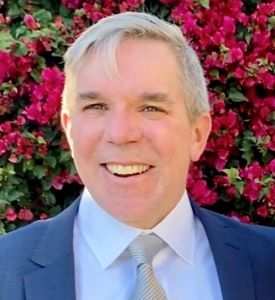
Categories
CPG SpotlightsAn Environmental Scan of Suicide Prevention Resources for Older Veterans in Primary Care
January 10 2024 2:00 ET Jennifer L. Sullivan, PhD and Kelly O’Malley, PhD
Previous research has identified the critical role of primary care in suicide prevention. Although several suicide prevention resources for primary care already exist, it is unclear how many have been created specifically for older Veterans. This environmental scan sought to assemble a compendium of suicide prevention resources to be utilized in primary care. Jenny Sullivan, PhD, and Kelly O’Malley, PhD will share how providers can bridge the knowledge gap when it comes to suicide risk management for older Veterans seen in primary care.
Following this live webinar, participants will be able to:
- Describe suicide prevention in Primary Care
- Discuss available resources identified in an environmental scan
- Identify clinical implications and future research
Jennifer L. Sullivan, PhD
Jenny Sullivan, PhD, is an Associate Director and Investigator at the Center for Innovation in Long-Term Services and Support (LTSS COIN) at VA Providence Healthcare System and is an Associate Professor (Research) at Brown University School of Public Health in the Health Services Policy and Practice Department. Dr. Sullivan has been a health services researcher in the VA for 20 years and has received grant funding from VA HSR&D and QUERI on several studies and evaluations. The core areas of Dr. Sullivan’s research have been assessing program implementation and quality of VA institutional and noninstitutional LTSS. More recently, her work has focused on geriatric mental health and suicide prevention for older Veterans. Her expertise includes mixed methods, qualitative research designs, and implementation science. She is a Researcher-in-Residence this year within the Office for Mental Health and Suicide Prevention (OMHSP) & Serious Mental Illness Treatment Resource and Evaluation Center (SMITREC).
Kelly O’Malley, PhD
Kelly O’Malley is a clinical psychologist at the VA Boston Community Living Center. She provides mental health care in sub-acute rehab, long-term care, and hospice and palliative care. She also supervises clinical psychology interns and fellows. Kelly’s research focuses on examining and understanding the presentation of PTSD in later life and at the end of life and the implementation of trauma-informed care in VA medical settings. She recently received a VA Career Development Award to evaluate CLC staff and Veteran experience with trauma-related symptoms in CLCs and developed a CLC and Veteran specific model of trauma-informed care.
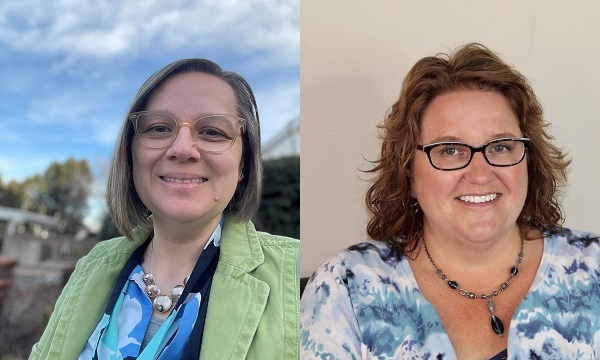
Extreme Risk Protection Orders and Suicide Risk Management
December 13 2023 2:00 ET Hal Wortzel, MD
Extreme risk protection orders (ERPOs) are a legal mechanism that enables law enforcement and other petitioners (depending on state law) to temporarily remove firearms from and prevent firearms purchase by an individual who presents a significant danger to self or others, as determined by a court of law. Hal Wortzel, MD, will discuss the implications of these new laws for mental health professionals.
Following this live webinar, participants will be able to:
- Identify the potential role of ERPOs in suicide risk management
- Describe resources to determine details pertaining to ERPOs in different jurisdictions
- Describe facilitating ERPOs (or not) in a way that is broadly consistent with the tenants of therapeutic risk management
Hal Wortzel, MD
Dr. Wortzel is a forensic neuropsychiatrist at the Rocky Mountain MIRECC, where he serves as Director of Neuropsychiatric Consultation Services and Co-director of the National Suicide Risk Management Consultation Program. He is an Associate Professor of Psychiatry, Neurology, and Physical Medicine & Rehabilitation at the University of Colorado. He serves as the Michael K. Cooper Professor of Neurocognitive Disease and as Faculty for the Program in Forensic Psychiatry. Dr. Wortzel maintains a private practice in Forensic Neuropsychiatry and Behavioral Neurology and has consulted on numerous criminal and civil cases. Areas of research/scholarship interest include suicide risk management, aggression, and suicide in the context of PTSD and TBI, brain injury litigation, and the application of emerging neuroscientific tools to the legal arena.
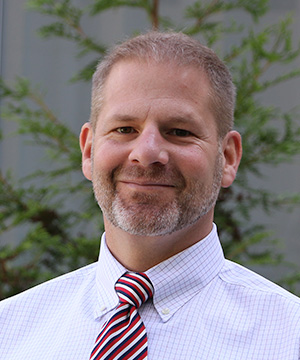
Challenging Barriers to Safety Planning: Considering Context and Clinical Complexity
November 8 2023 2:00 ET Colleen Becket-Davenport, PsyD and Georgia Gerard, LCSW
Safety Planning is an effective, evidence-based intervention for Veterans with suicidal ideation and/or a history of suicide attempts. Contextual circumstances and clinical complexity can impact the ability to implement and complete a high-quality Safety Plan. Providers and Veterans often encounter challenges that can be barriers to effective implementation of the Safety Plan after it is developed.
This live, knowledge-based virtual presentation for interprofessional health care teams will help improve confidence and foster greater collaboration between providers and Veterans. A review of the Safety Plan mobile app will also be provided. This program will help bridge the knowledge gap for providers when it comes to the Safety Planning process and working with Veterans who are at increased risk for suicide.
Colleen Becket-Davenport, PsyD
Colleen Becket-Davenport is a clinical psychologist at the National Center for PTSD, Dissemination and Training Division. She is an Implementation Facilitator and the Communication and Training Lead for the Tech into Care Program. She is also a consultant for the PTSD Consultation Program. As part of her role, Dr. Becket-Davenport delivers trainings on VA mental health apps and works with health care teams to incorporate apps into care. She received her Psy.D. from the Wright Institute in Berkeley, CA.
Georgia Gerard, LCSW
Georgia Gerard received her MSW from the University of Denver and is a licensed clinical social worker with the Mental Illness, Research, Education Clinical Center (MIRECC) at the Rocky Mountain Regional VA Medical Center. Her background is in the assessment of suicide risk in Veterans and suicide risk management best practices. She joined the Rocky Mountain MIRECC in 2012 where she serves as a consultant on the VA’s Suicide Risk Management Consultation Program and provides implementation and technical assistance support for VA national suicide prevention programs.

Categories
Safety PlanningThe Role of Relationships in Risk for Self-Directed Violence
October 11 2023 2:00 ET Danielle M. Weber, PhD
Efforts to understand and prevent self-directed violence often focus on a person's internal experiences that increase risk for self-harm. However, external experiences, like a Veteran's romantic relationship, can also enhance or reduce risk for self-directed violence. Danielle Weber, PhD, will discuss the effect of committed romantic relationships on a Veteran's risk for self-harm. Attendees will have the opportunity to discuss how to incorporate these insights into Veteran care.
Following this live, knowledge-based webinar, clinicians and health care teams will be able to:
- Describe background knowledge on the association between mental health and relationship health
- Describe the link between relationship functioning and self-directed violence
- Identify potential strategies for attending to relationship factors within assessment and interventions with veterans
Danielle M. Weber, PhD
Danielle M. Weber, PhD is a postdoctoral research associate at the University of Georgia. She completed her predoctoral internship at the Durham VA Medical Center and her PhD in clinical psychology at the University of North Carolina at Chapel Hill. Her area of research expertise centers on the functioning of romantic relationships, including how relationships shape and are shaped by individual health challenges. She is also an active clinician specializing in couple therapy for relationship distress as well as individual health challenges. As the child of two Army parents, she is interested in how the characteristics of Veterans’ relationships impact their individual mental health.
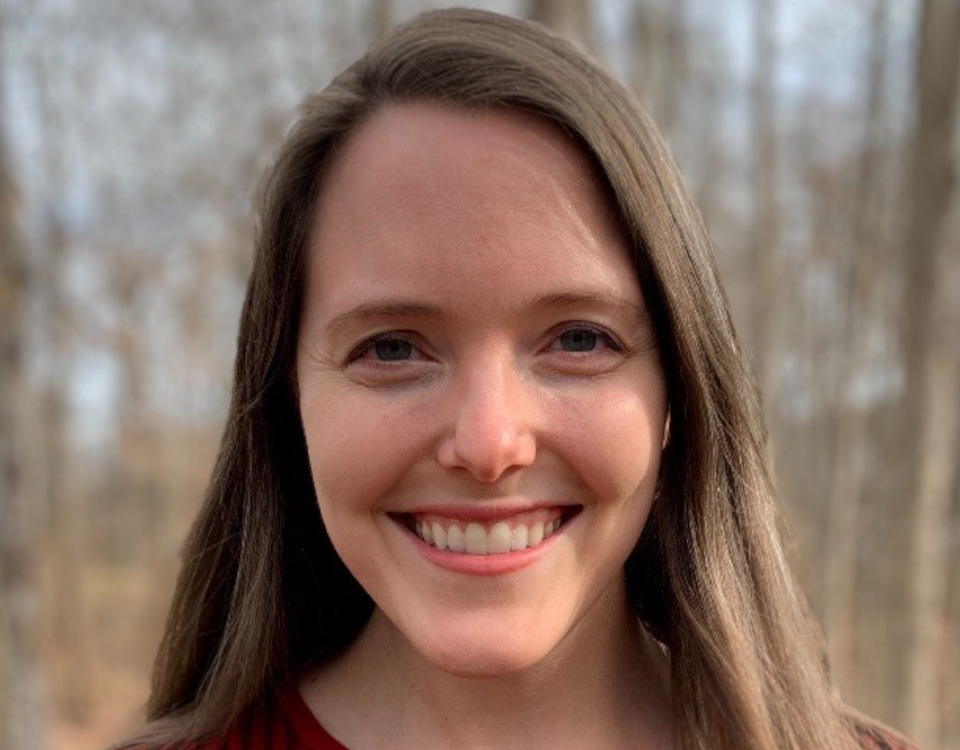
Categories
Family/CaregiversBlack Mental Health and Suicide Risk
September 13 2023 2:00 ET Danielle McDuffie, MA, PhD and Jessica Fraser, PsyD
This month's lecture will focus on the rising rates of suicide among Black individuals. Jessica Fraser, PsyD, and Danielle McDuffie, MA, PhD, will lead a discussion concerning inherent bias within the Mental Health System, stereotypes and biases directed towards Black individuals, and ways to challenge these systemic biases. Attendees will have the opportunity to discuss potential commitments towards change that providers can incorporate in their daily care of clients.
Following this live, knowledge-based webinar, clinicians and health care teams will be able to:
- Describe rates of suicidality among Black individuals.
- Recognize inherent bias within the Mental Health System directed towards Black individuals.
- Identify potential commitments for change.
Danielle L. McDuffie, MA, PhD
Danielle L. McDuffie, MA, PhD, is a current postdoctoral fellow at the Durham VA Health Care System in Durham, NC. Dr. McDuffie is originally from a small town called Scotch Plains, NJ, and completed her undergraduate studies at Temple University in Philadelphia, PA. Both her MA and PhD in Clinical Psychology (with a specialty in Clinical Geropsychology) were completed at the University of Alabama in Tuscaloosa, AL, where her research interests centered on minority aging, specifically related to Black older adults. Dr. McDuffie completed her internship at the Durham VA Health Care System. Broadly, her clinical and research interests include minority aging, religion, spirituality, grief, bereavement, and Positive Psychology. When she's not working, Dr. McDuffie enjoys spending time with her dog Cocoa, engaging in "family Facetimes," spending time with loved ones, and watching true crime docuseries.
Jessica Fraser, PsyD
Dr. Jessica Fraser is a proud Baltimorean (from Baltimore, MD) who attended Johns Hopkins University for undergrad and Loyola University Maryland for her graduate studies in Clinical Psychology. She completed her internship at the Federal Medical Center of Carswell in Ft. Worth, Texas and began her early career as the Addictions and Trauma Recovery Services Clinical Coordinator at Springfield Hospital Center in Sykesville, MD. Her areas of expertise include Racial Identity development, Racial trauma, Racial Identity development as a protective factor, Comprehensive Trauma, Substance Use, Reentry, Supervision, Grief, and Bias. Currently Dr. Fraser serves as a Staff psychologist in the Baltimore PCT. Additionally, Dr. Fraser serves as the Chair of the Mental Health Diversity committee within the Baltimore VAMC and is an active part of the training program within the Baltimore VAMC.

Categories
Special PopulationsFirearm Acquisition & Ownership — Decision Making Within the Context of Injury Risk
August 9 2023 2:00 ET Joseph Simonetti, MD
Firearm safety counseling is recommended for individuals with elevated suicide risk but there are often obstacles that hinder the adoption of firearm safety recommendations. Joseph Simonetti, MD, MPH, will guide a discussion about improving the understanding of firearm ownership and use as it pertains to individual's decisions about injury risk. This understanding is necessary when discussing firearm safety behaviors with patients.
Following this live, knowledge-based webinar, clinicians and health care teams will be able to:
- Recognize reasons Americans choose to own and use firearms
- Describe firearm acquisition among Americans during the pandemic era
- Describe perceptions of injury risk among American firearm owners
Joseph Simonetti, MD
Dr. Simonetti is an internal medicine physician and clinical investigator who focuses on developing patient-centered firearm safety interventions for individuals at risk of suicide. Additionally, his work supports VA and community-based clinicians in delivering evidence-based and culturally competent lethal means counseling for at-risk Veterans.
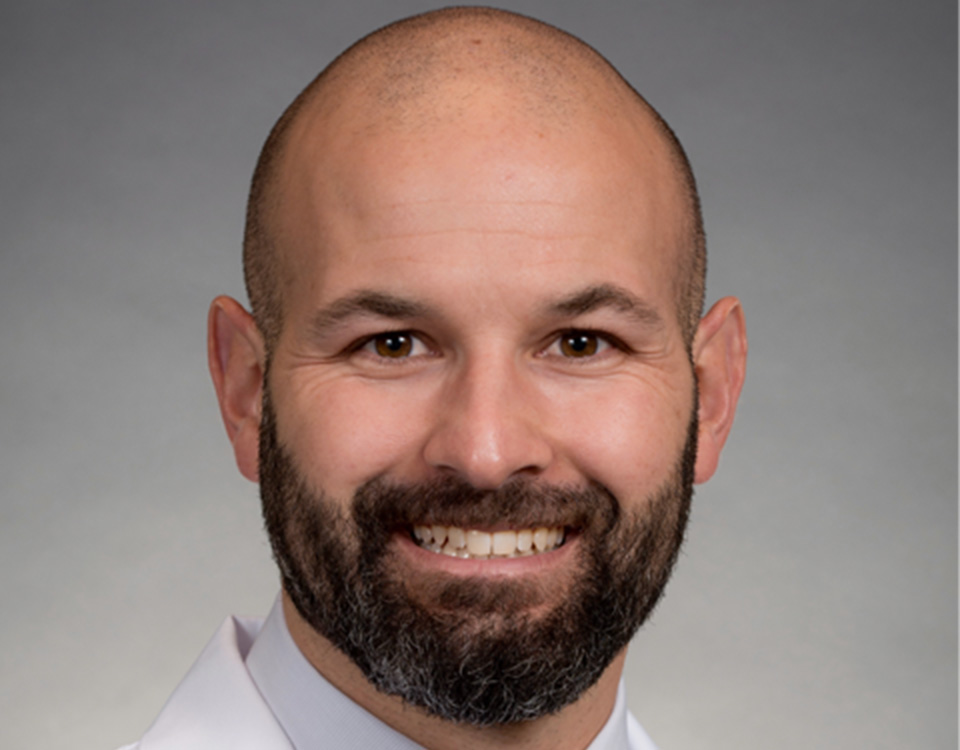
Diverse Reflections of Deep Sadness: Considering Suicide Through a Cultural Lens
July 12 2023 2:00 ET Charlotte McCloskey, PhD
Suicide prevention efforts have primarily focused on western ideology and European epistemology concepts of sadness, loss, grief, guilt, and shame. This program will focus on encouraging a broader view when conceptualizing the reasons for, and the clinical prevention responses to, suicidal thoughts, behaviors, and beliefs. Building from the awareness that a monolithic whole/one size fits all conceptualization has historically fallen short of the clinical needs of Veterans from diverse backgrounds, this discussion will encourage the weaving of diverse story, equity in provision of care, and inclusion of differing ideology and prevention methods into clinical care and clinical research aims.
Following this live, knowledge-based webinar, clinicians and health care teams will be able to:
- Discuss and describe suicidal thoughts, behaviors and prevention strategies among people of different cultures, races, and ethnicities.
- Describe cultural factors that impact the experience of depression and depression-related behaviors among people from marginalized and underserved communities.
- Identify research-based directions and strategies for suicide prevention rooted in culturally informed care for all people.
Charlotte McCloskey, PhD
Dr. Charlotte McCloskey, Sicangu Lakota, is the Local Recovery Coordinator and a staff psychologist at the KCVA. She is active in American Psychological Association, Division 18: Psychologist in Public Service, VA Section and chair for Psychologists In Indian Country Section, and a former member of Committee for Women in Psychology. She is a co-coordinator for the national call for the Psychologists of Color Special Interest Group for the Association for VA Psychology Leaders, and a member of the Society of Indian Psychologists and the Society of American Indian Government Employees. Most recently, she held a detail that was collaboration of the Office of Mental Health and Suicide Prevention, Office of Rural Health and the Rocky Mountain MIRECC focused on efforts to better serve Native American Veterans. She is also a Subject Matter Expert and Co-Chair for the OMHSP DE&I Resource SharePoint project. She received her masters and doctorate from the University of Missouri-Columbia

Categories
Special PopulationsPopulation-Level Analyses of the Rural-Urban Suicide Disparity Among VA Patients
June 14 2023 2:00 ET Brian Shiner MD, MPH
Join us to review recent research examining the rural-urban disparity in the risk of death by suicide among VA patients. Brian Shiner, MD, MPH, will discuss the demographic differences between rural and urban patients contributing to this disparity as well as address strategies to improve coding of VA race and ethnicity data.
Following this live, knowledge-based webinar, clinicians and health care teams will be able to:
- Discuss background literature on suicide mortality rates among rural and urban populations.
- Describe the overall trends in suicide mortality rates among rural and urban VA patients.
- Identify best practices for coding of race and ethnicity data using VA electronic medical record data.
- Display suicide mortality rates among demographic sub-populations of VA patients.
Brian Shiner MD, MPH
Brian Shiner is a psychiatrist and preventive medicine physician who has been conducting research in the areas of PTSD and suicide prevention at the White River Junction VA Medical Center since finishing residency in 2009. He is currently the associate chief of staff for research at White River Junction, as well as associate professor at Dartmouth’s Geisel School of Medicine. Over the last four years, Brian collaborated with the Veterans Rural Health Resource Center-White River Junction to complete a series of studies on the rural-urban disparity in death by suicide among VA patients. He will be presenting his findings from this work.
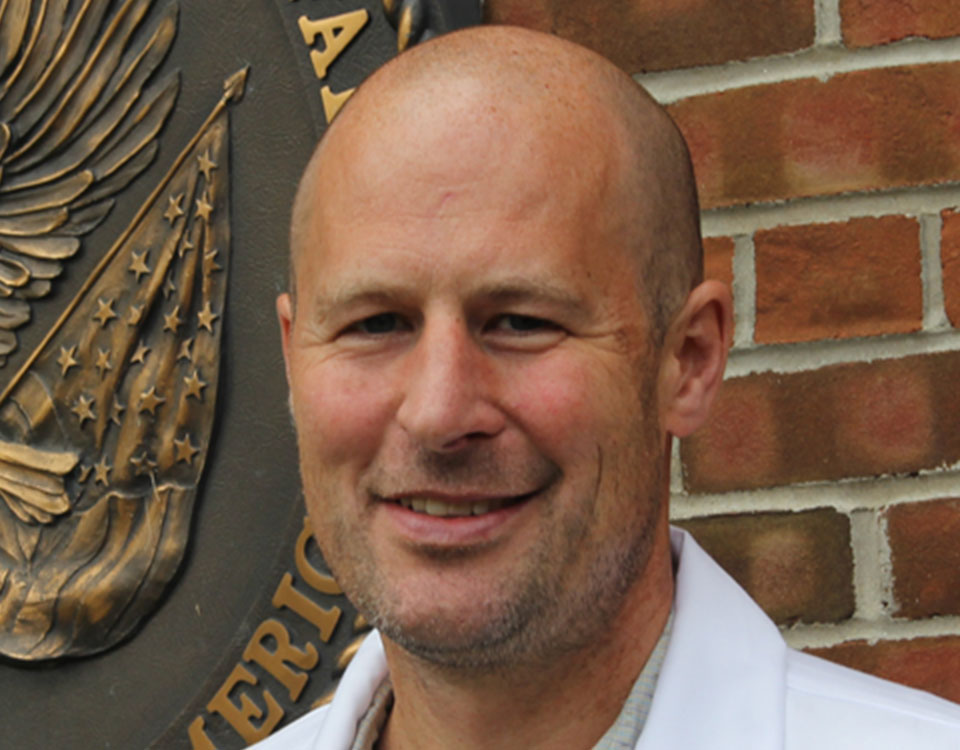
Categories
Community ApproachesVA Suicide Risk Identification Strategy (Risk ID): Utilizing the CPG to Inform Standardized Suicide Risk Screening and Evaluation
May 10 2023 2:00 ET Suzanne McGarity, PhD
VA's enterprise-wide Suicide Risk Identification strategy, Risk ID, is consistent with multiple recommendations outlined in the VA/DoD Clinical Practice Guideline for the Assessment and Management of Patients at Risk for Suicide. This month, Suzanne McGarity, PhD, will discuss the recommendations and share real-world examples of how they can be implemented in clinical practice.
Following this live, knowledge-based webinar, clinicians and health care teams will be able to:
- Describe the components of the VA's Suicide Risk Identification strategy (Risk ID);
- Identify three CPG recommendations that were incorporated into Risk ID;
- Recognize barriers and facilitators to implementation of universal suicide risk screening
Suzanne McGarity, PhD
Dr. McGarity is a Clinical Psychologist in the Rocky Mountain MIRECC where she serves multiple roles. She provides technical assistance as a member of the VA Risk ID and SPED implementation team and consultation services for the Rocky Mountain MIRECC's local and national Suicide Risk Management consultation program. She is also a consultant with the Advanced Safety Planning Intervention Training Program.

Whole Health as Suicide Prevention
April 12 2023 2:00 ET Dr. Jennifer Patterson, PhD, ABPP and Dr. Kathy Hedrick, PhD
Older adults have risk factors for suicide such as social isolation, loneliness, loss, and decreased functioning and mobility. For Veterans, engagement in a Whole Health system can help create a sense of purpose and social connection, a commitment to self-care activities, and a trusting relationship with health care professionals. This month, Jennifer Patterson, PhD, ABPP and Kathy Hedrick, PhD, will discuss the use of holistic measures to promote meaning and purpose in Veterans' lives and address suicide prevention. Information on how to integrate Whole Health will result in better Veteran care.
Following this live, knowledge-based webinar, clinicians and health care teams will be able to:
- Describe the Whole Health System;
- Discuss the relationship of purpose and self-care as protective factors;
- Identify at least one strategy for connecting with the Veteran's mission, aspiration and purpose;
- Describe resources related to Whole Health and Suicide Prevention
Dr. Jennifer Patterson, PhD, ABPP
Dr. Jennifer Patterson is the National Director for Integrated Services with the Office of Mental Health and Suicide Prevention (OMHSP). In this position she serves as a member of the OMHSP Executive Leadership Team and has direct oversight for the integration of mental and behavioral health care into medical settings and the integration of Whole Health across mental health programs. Dr. Patterson is a licensed Clinical Psychologist and is board certified in Organizational and Business Consulting Psychology via the American Board of Professional Psychology. She is committed to values-driven leadership, investing in people and cutting-edge innovation, and translating strategic vision into measurable healthcare transformation. In support of health and well-being, Dr. Patterson enjoys fishing and hiking in the Sierra Nevada mountains and spending time with her husband, mischievous parrot and 2 exuberant dogs.
Dr. Kathy Hedrick, PhD
Dr. Kathy Hedrick is a Senior Consultant with the Office of Patient Centered Care and Cultural Transformation (OPCC&CT). In this position, she leads the work for Whole Health in Oracle Cerner integration, the Coding and Tracking team, and is Chair of the Whole Health Clinical Care Task Force. She works as the primary contact for OPCC&CT for the Office of Mental Health and Suicide Prevention. Dr. Hedrick is a licensed Clinical Psychologist and, prior to joining OPCC&CT, worked for several years as a psychologist in VHA focusing on trauma processing with Veterans who have experienced Combat and Military Sexual related traumas. Dr. Hedrick lives and works out of North Carolina and, in support of her health and well-being, is currently training for her fifth half marathon.

Categories
SDOHMilitary and Veteran Caregivers: Health, Wellbeing, and Phenotypes for Suicidal Ideation
March 8 2023 2:00 ET Roxana E. Delgado, PhD, MSH
Military and Veteran caregivers in the United States have unique needs and psychosocial characteristics to consider. This month, Roxana Delgado, PhD, MS, will describe the health, wellbeing, and unique challenges of military and Veteran caregivers.
Following this live, knowledge-based webinar, clinicians and health care teams will be able to:
- Describe the situation of military caregiving in the United States
- Identify the unique characteristics and factors associated with the health and wellbeing of military caregivers, specifically mental health
- Explain the phenotypes of distress and the association with suicidal ideation in caregivers of wounded, ill and injured Veterans
Roxana E. Delgado, PhD, MSH
Dr. Roxana Delgado is a health scientist and an Assistant Professor at the University of Texas Health Science Center at San Antonio, School of Medicine, General and Hospital Medicine Division. Dr. Delgado developed the "Military and Veteran Caregiver Portfolio," a research platform that addresses the short and long-term health-related outcomes of caregivers of wounded, ill, and injured service members and Veterans. Her research focuses on predictors and health outcomes in military caregivers, with an emphasis on the long-term trajectory of disease and illness. Dr. Delgado's professional experience was inspired by her firsthand experience as the wife of a combat wounded veteran and Purple Heart Recipient. She is a nationally recognized speaker, author, researcher, and avid advocate for traumatic brain injury and caregiving. She co-founded the TBI Warrior Foundation, where she volunteers her time to improve access and care for traumatic brain injuries. She serves on various advisory boards to inform national policies and programs for Veterans and caregivers. A 2015-16 Elizabeth Dole Foundation Fellow representing the State of Texas. She is passionate about what she does. Her goal is to dedicate her life and profession to contributing to science and helping wounded, ill and injured Veterans and their caregivers discover ways to thrive.

Categories
Family/CaregiversLatest Research Updates on Caring Contacts for Suicidal Patients
February 8 2023 2:00 ET Kate Comtois, PhD, MPH
Caring Contacts is an intervention strategy that has been shown to reduce suicidal ideation, attempts, and deaths. This month, Kate Comtois, PhD, MPH, will provide information to help providers understand Caring Contacts, review the latest research concerning the intervention, and how to scale and implement Caring Contacts with Veterans.
Following this live, knowledge-based webinar, clinicians and health care teams will be able to:
- Summarize the history, rationale, and common characteristics of the Caring Contacts intervention
- Describe how to scale and implement Caring Contacts to include text message and postal mail
Kate Comtois, PHD, MPH
Kate Comtois, PhD, MPH is Professor in the Department of Psychiatry and Behavioral Sciences and Adjunct Professor in the Department of Psychology at the University of Washington. She received her Ph.D. in clinical/community psychology from the University of Maryland in 1992. She received her MPH in Health Services at the University of Washington in 2009. Dr. Comtois' research career is dedicated to promoting the recovery of individuals experiencing suicidal thoughts and behavior and the effectiveness and resilience of the clinical staff and families who care for them.
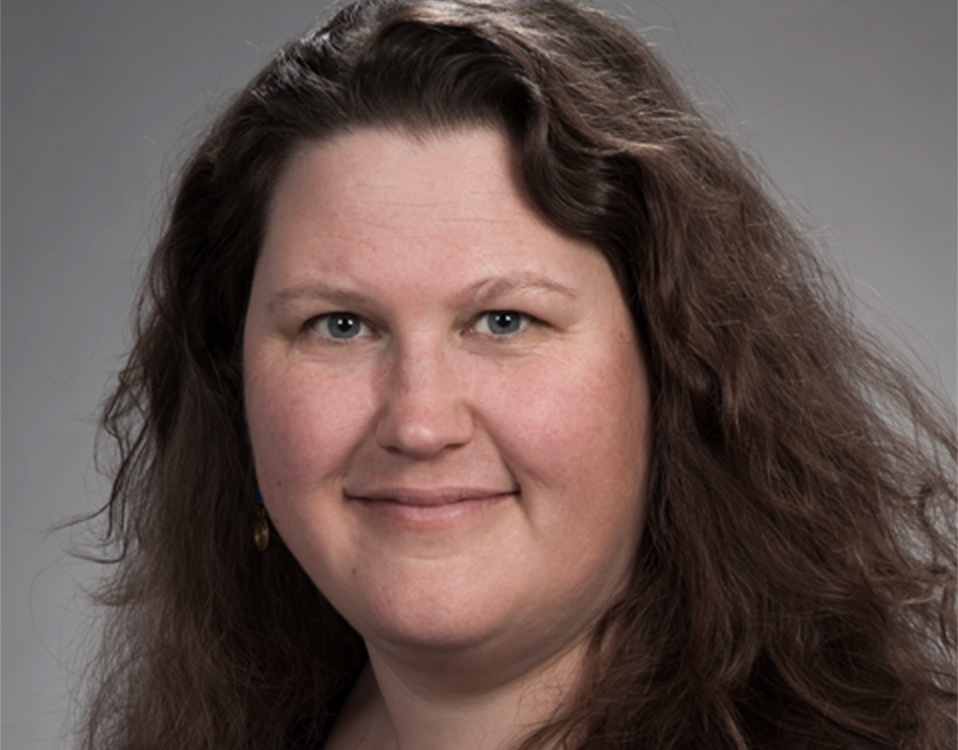
Grief, Loss, and Meaning in BIPOC Veterans: Exploring Historical Trauma and Suicide Risk Management
January 11 2023 2:00 ET Maurice Endsley, Ph.D. and Charlotte McCloskey, Ph.D.
Grief carries a powerful emotional impact for the bereaved, and when the loss is significant, grief expression can manifest in thoughts of joining those who have died, or, experiencing suicidal ideation. This can particularly affect individuals from communities who have experienced repeated and lasting losses based on racial bigotry and historical trauma.
This month, Maurice Endsley, Ph.D., and Charlotte McCloskey, Ph.D., will provide information to help providers explore the impact of historical trauma on contemporary grief and loss recovery with a focus on BIPOC Veterans.
Following this live, knowledge-based webinar, clinicians and health care teams will be able to:
- Provide overview of suicide risk in the context of bereavement and loss for BIPOC Veterans
- Define historical trauma and describe how it influences contemporary reactions to grief and loss in BIPOC Veterans
- Share resources to further mitigate suicide risk in the context of bereavement and historical trauma
Maurice Endsley, Ph.D.
Dr. Endsley obtained a doctoral degree in clinical psychology from the University of Missouri — St. Louis with an emphasis in Behavioral Medicine. He has specialized training in health psychology in primary care settings and psycho-oncology. He is currently serving as the Diversity, Equity, and Inclusion Program Manager for VA Northern California. His interests include multicultural psychology with a focus on the impact of coping with race-based stress on mental and physical health. He was co-lead for a VA Innovation and VA Office of Health Equity supported project to spread a race-based stress and trauma group-based intervention to support Veterans of Color. He is also a Subject Matter Expert and Co-Chair for the OMHSP DEI Resource SharePoint site. He has provided numerous trainings and talks on the impact of racism on mental and physical health, including interventions to improve health equity.
Charlotte McCloskey, Ph.D.
Dr. Charlotte McCloskey, Sicangu Lakota, is the Local Recovery Coordinator and a staff psychologist at the KCVA. She is active in American Psychological Association, Division 18: Psychologist in Public Service, VA Section and chair for Psychologists In Indian Country Section, and a former member of Committee for Women in Psychology. She is a co-coordinator for the national call for the Psychologists of Color Special Interest Group for the Association for VA Psychology Leaders, and a member of the Society of Indian Psychologists and the Society of American Indian Government Employees. Most recently, she held a detail that was collaboration of the Office of Mental Health and Suicide Prevention, Office of Rural Health and the Rocky Mountain MIRECC focused on efforts to better serve Native American Veterans. She is also a Subject Matter Expert and Co-Chair for the OMHSP DE&I Resource SharePoint project. She received her masters and doctorate from the University of Missouri-Columbia with an emphasis on teaching and multicultural psychology. Her professional/clinical interests are focused on mentorship, consultation, recovery/resiliency, trauma, and grief and loss.

Categories
Special PopulationsTalking to Kids after a Suicide Attempt
December 14 2022 2:00 ET Christie Machan, LCSW, and Aaron Murray-Swank, PhD
Talking about a suicide attempt in the family is important for all members of that family—including children. This month, Christie Machan, LCSW, and Aaron Murray-Swank, PhD, will provide a framework of child and adolescent supports and resources helpful for addressing a suicide attempt in the family.
Following this live, knowledge-based webinar, clinicians and health care teams will be able to:
- Identify why talking about a suicide attempt in the family is important for kids in that family
- Describe when and how family members should talk about the attempt
- Discuss ideas on how much information to share by age group that is developmentally appropriate
- Describe ways adults can support a child after a suicide attempt in the family
Christie Machan, LCSW
Christie Machan is a Licensed Clinical Social Worker with the Rocky Mountain MIRECC for Veteran Suicide Prevention with the VA Eastern Colorado Healthcare System. She has worked with Veterans and their families across a range of clinics and settings through her 13 year career in the VA Healthcare System. In her current role, Ms. Machan works with the VISN 19 MIRECC Clinical Core Team on projects including; National Suicide Risk Management Consultation Program, Postvention Consultation, and the Risk ID Implementation Team. She is passionate about supporting Veteran's wellbeing by nurturing their parental and partner relationships to build up protective factors and reduce suicide risk.
Aaron Murray-Swank, PhD
Aaron Murray-Swank, PhD, is a Clinical Psychologist in the Virtual Behavioral Health Interdisciplinary Program (BHIP) in the VA Eastern Colorado Healthcare System. He has worked with Veterans and their families across a range of clinics and settings throughout his 19 year career in the VA Healthcare System. Dr. Murray-Swank is an Assistant Clinical Professor in the Department of Psychiatry at the University of Colorado School of Medicine and an Affiliate Faculty Member at Regis University in the Division of Counseling and Family Therapy. He has authored or co-authored over 20 professional publications, including work on family interventions for serious mental illness and suicide postvention.

Categories
Family/CaregiversGatekeeper Training as a Force Multiplier for Community Suicide Prevention
November 9 2022 2:00 ET Cicely Burrows-McElwain, LCSW-C and Kendra Barnes, LCSW
The Community Practice Guideline for Suicide Prevention highlights gatekeeper training as a widely adopted strategy for population and community-based interventions. This month, Cicely Burrows-McElwain, LCSW-C, and Kendra "Kenner" Barnes, LCSW, will introduce the CPG guidance on gatekeeper trainings, and provide an overview of the options and applications of such trainings in community settings. Many gatekeeper training options are available to communities looking to expand their continuum of tools as they strive to implement a comprehensive approach to suicide prevention.
Following this live, knowledge-based webinar, clinicians and health care teams will be able to:
- Examine CPG population- and community-based interventions related to gatekeeper training
- Understand a brief overview of existing literature published
- Explore various models of gatekeeper trainings and key components to the models
- Identify and access information on gatekeeper trainings for various settings
Cicely Burrows-McElwain, LCSW-C,
Cicely Burrows-McElwain, LCSW-C, joined the VA Suicide Prevention Office in the Community-Based Interventions for Suicide Prevention Technical Assistance and Resource Center Director in 2021. Prior to her current role Cicely served as the Military & Veteran Affairs Liaison at SAMHSA and has over 2 decades practice experience in community settings.
Kendra "Kenner" Barnes, LCSW
Kendra "Kenner" Barnes, LCSW, joined the VA Suicide Prevention Program Office in December 2021 as part of Community Based Interventions for Suicide Prevention as the Program Manager for VISN 20. She has been with the VA since 2011. Previous experience includes supporting Veterans through SPC, PCMHI, M2VA and PACT/SCI programs.

Supporting Staff During Challenging Times
October 12 2022 2:00 ET John McQuaid, PhD
This month, Dr. John McQuaid, PhD, will address the impact of stressful life events on staff. Strategies leaders can take to support staff in the face of both acute and ongoing stress with the ultimate aim of enabling better Veteran care will be discussed. Following this live, knowledge-based webinar, clinicians and health care teams will be able to describe the role of stress in mental health and occupational functioning, identify principles for supporting staff dealing with increased challenges, and specific interventions adopted by the San Francisco VA to address stress during the COVID-19 pandemic.
John McQuaid, PhD
John McQuaid, PhD is Associate Chief of Staff for Health Equity, San Francisco VA Health Care System as well as Vice Chair, Department of Psychiatry of the Weill Institute of Neuroscience at University of California, San Francisco.

Categories
Staff ResilienceFinancial Well-Being and Suicide Risk in Military Veterans
September 14 2022 2:00 ET Eric Elbogen, PhD, ABPP
Empirical research shows a link between financial strain and suicide risk. Addressing this should be a critical component of suicide prevention in Veterans. This month, Eric Elbogen, PhD, ABPP, will discuss the correlation between financial stressors and suicide risk, provide an overview of the unique financial needs and challenges of Veterans, and discuss available financial resources and targeted interventions that can be used to improve skills for achieving financial empowerment.
Dr. Eric Elbogen, PhD, ABPP
Dr. Eric Elbogen, PhD, ABPP is a Clinical Psychologist at the VA and Professor of Psychiatry at Duke University. He ran a money management group at the VA for over a decade, and has been Principal Investigator of a randomized controlled trial of a recovery-oriented money management intervention for Veterans and of a nationally representative longitudinal survey of Veterans identifying a link between financial strain and suicidal ideation. Dr. Elbogen and colleagues also demonstrated a link between financial strain and suicide risk in the US general population and during the COVID-19 pandemic.

Categories
SDOHSuicide Prevention in Veterans with Substance Use Disorders
August 10 2022 2:00 ET James Haug, MD, and Erin Higgins, LCSW, LAC
Nearly 1 in 12 adults in the United States has a Substance Use Disorder. It is well known that substance use can elevate the risk for suicidal behavior. This presentation will review the specifics of how it increases risk. Our goal is to educate the audience on the correlation between substance use and suicide risk, address challenges in assessing individuals with concurrent substance use and suicide risk and offer treatment recommendations.
James Haug, MD
James Haug received his MD from the University of Colorado School of Medicine. He completed his residency in psychiatry at the Medical University of South Carolina, serving as a chief resident in his final year. He returned to Colorado and completed a fellowship in addiction psychiatry at the University of Colorado. He is currently the Medical Director for Substance Use Disorder Clinics for Eastern Colorado Healthcare System. He is involved in medical student education and is the psychiatry liaison for the Longitudinal Integrated Clerkships at the Rocky Mountain Regional VAMC.
Erin Higgins, LCSW, LAC
Erin Higgins is a Licensed Clinical Social Worker and Licensed Addictions Counselor with the Rocky Mountain MIRECC for Suicide Prevention. She serves as Postvention Lead and is a consultant for the Suicide Risk Management Consultation Program. Prior to joining the MIRECC in 2020, she served as Program Manager for the Outpatient Substance Use Disorders Clinic at the Rocky Mountain Regional Medical Center in Denver, Colorado. Her clinical interests include suicide postvention, the intersection of substance use disorders with suicide risk, and using technology to improve suicide risk screening and interventions.

Categories
Co-Occurring ConditionsAddressing Therapy Interfering Behaviors (TIBs) in the Context of Suicide Risk
July 13 2022 2:00 ET Lauren Borges, PhD
Therapy interfering behaviors (TIBs) in those at risk for suicide can present as a barrier to successful treatment. This month, Lauren Borges, PhD, will discuss how therapy interfering behaviors (TIBs) can disrupt treatment and prevention efforts on the behaviors maintaining suicide risk.

Suicide Prevention and End of Life
June 8 2022 2:00 ET Pamela Steadman-Wood, PhD, ABPP and Kristen Dillon, PsyD, ABPP
This live, knowledge-based webinar for healthcare teams will cover suicidality at end of life. This webinar will discuss the unique issues of desire for hastened death and suicidality at end of life. Participants will learn the differences between desire for hastened death and suicidality. Contributing and risk factors for both suicidality and desire for hastened death will be discussed. Participants will discuss practical approaches to risk assessment and interventions in the context of end of life.
Pamela Steadman-Wood, PhD, ABPP
Dr. Steadman-Wood is a board certified Geropsychologist. She is Chief of General Outpatient Mental Services at the Providence VA Medical Center and a Clinical Associate Professor in the Department of Psychiatry and Human Behavior at Brown University's Alpert Medical School. Her primary areas of interest are in the development and implementation of integrated geriatric behavioral health programs, geropsychology training and evidence-based psychotherapy competency training.
Kristen Dillon, PsyD, ABPP
Dr. Dillon is a board certified Geropsychologist practicing in Hospice and Palliative Care at VA Bedford. She is the Geriatric Mental Health Champion for VISN 1. She provides care to Veterans and families in hospice, serves as a member of the palliative care consult team, manages the bereavement program and facilitates the hospice and palliative care rotation for psychology trainees.

Categories
End of LifeSuicide Prevention among those with Neurologic Conditions
May 11 2022 2:00 ET Lisa Brenner, PhD
Individuals with a history of neurologic conditions (e.g., stroke, TBI, ALS) have been identified as being at an increased risk for suicide. Data regarding risk, as well as factors associated with risk will be presented, as well as information regarding most prevalent mechanisms of suicide death. Strategies for intervention with these high risk cohorts will also be discussed. This month, Dr. Lisa Brenner, Director of the Rocky Mountain Mental Illness Research, Education and Clinical Center (MIRECC) will discuss suicide prevention and intervention strategies for those with neurologic conditions.

Self-Directed Violence Classification System (SDVCS)
April 13 2022 2:00 ET Ryan Holliday, PhD
Understanding and classifying suicidal thoughts and behaviors remains a challenge. In particular, misclassification can impact clinical care and surveillance which can result in decreased understanding of the issue and appropriate treatment considerations and planning. As such, utilization of a standard nomenclature (i.e., the Suicidal Self-Directed Violence Classification System [SDVCS]), developed by the Centers of Disease Control and Prevention (CDC) addresses such an issue. Understanding and utilization of the SDVCS is integral for several reasons. First, SDVCS allows for classification of self-directed violent thoughts and behaviors in an atheoretical, unbiased capacity. Additionally, classification is comprehensive and only falls into a single thought/behavior. Finally, classification utilizing the SDVCS is presently required within VHA.
Ryan Holliday, PhD
Dr. Holliday is a Clinical Research Psychologist at the Rocky Mountain MIRECC Illness Research, Education and Clinical Center for Veteran Suicide Prevention and an Assistant Professor at the University of Utah Colorado Anschutz Medical Campus. His clinical and research interests focus upon understanding the intersection of trauma, psychosocial stressors and mental health. He is further interested in translating these findings into evidence-based practice.

Categories
SDVCSRecommendations for Postvention Processing Sessions
March 9 2022 2:00 ET Suzanne McGarity, PhD, and Christie Machan, LCSW
Losing a patient to suicide can be emotionally taxing — both professionally and personally. Postvention services provide comprehensive support to help providers heal and cope following the loss of a patient. This month, SRM consultants Christie Machan and Dr. Suzanne McGarity will illustrate how to effectively conduct postvention processing sessions for providers.

Categories
PostventionSuicide Risk Management for Rural Native Veterans
February 9 2022 2:00 ET Jay Shore, MD, MPH
Rural Native Veterans often experience disparate mental health outcomes due to military service. This month, Dr. Jay Shore will present common mental health issues and how to provide mental health care to Rural Native Veterans including approaches in suicide risk management.

Categories
Special PopulationsThe Role of Psychosocial and Vocational Rehabilitation in Suicide Prevention
January 12 2022 2:00 ET Shana Bakken, PhD, CRC, Dan Bradford, MD, MPH and Timothy Smith, PhD
Psychosocial and vocational rehabilitation programs and resources can promote recovery and reduce the risk of suicide among Veterans. This month, a panel of presenters (Bakken, Bradford and Smith) will discuss the Psychosocial Rehabilitation and Recovery Services Section of the VHA's Office of Mental Health and Suicide Prevention and how these programs include a prominent suicide prevention component.

Categories
SDOHSuicide Prevention for Veterans with Disabilities
December 8 2021 2:00 ET Erin Andrews, PsyD, ABPP
Disability is often portrayed through the medical model as an individual problem rather than as a diverse social, political, and cultural experience. This month, attendees will increase their awareness of the cultural aspects of disability, how these factors contribute to suicide risk among Veterans with disabilities, and learn to identify and challenge their own disability biases.

Categories
Special PopulationsUnderstanding and Navigating Elevated Suicide Risk when Working with Justice-Involved Veterans
November 10 2021 2:00 ET Ryan Holliday, PhD; Matthew Stimmel, PhD; Katharine Stewart, LCSW; Alisha Desai, PhD
Veterans may experience difficulty readjusting to civilian life and have difficultly managing mental health issues, injuries, or trauma that may result in Veteran involvement in the criminal justice system. Research indicates that justice-involved Veterans may face various psychosocial stressors which can increase their risk for suicide. This month, a panel of presenters (Holliday, Stimmel, Steweart and Desai) will discuss how to navigate elevated suicide risk when working with justice-involved Veterans.

Categories
SDOHSuicide Risk and Prevention for Sexual and Gender Minority Populations
October 13 2021 2:00 ET John Blosnich, PhD, MPH
Recent research shows people who identify as lesbian, gay, bisexual, or transgender experience high disparities in suicidal ideation and attempt. This month, John Blosnich, PhD, MPH will discuss suicide risk and prevention for sexual and gender minority populations. Understanding and considering the social environmental context of risk and protective factors for these populations is key to developing public health approaches to suicide prevention.

Categories
Special PopulationsSupporting the Wellbeing of Mental Health and Suicide Prevention Providers in the Context of COVID
September 8 2021 2:00 ET Patricia Watson, PhD
The COVID-19 pandemic has created unprecedented, stressful environments for mental health professionals. This month, Patricia Watson, PhD, will review how providers can increase self-care and peer support using a flexible, evidence-informed framework. Dr. Watson will discuss ways to identify common stress reactions and risk factors for mental health and health care providers responding to extended public health crises, describe strategies for engaging in self-care and peer support and explain the core components of an evidence-based peer support intervention.

Categories
Staff ResilienceTargeting Suicidal Behavior in the Context of Moral Injury
August 11 2021 2:00 ET Lauren Borges, PhD
During this month's lecture, Lauren Borges, PhD, will discuss how clinicians and health care teams can conceptualize and effectively target suicidal behavior in the context of moral injury. Following the webinar, clinicians and health care teams will be able to describe a conceptual model of moral injury and suicide risk, discuss Acceptance and Commitment Therapy for Moral Injury (ACT-MI) as an approach to targeting moral injury and suicidal behavior and discuss the results of a case study where ACT-MI was applied to moral injury and suicidal behavior.

Categories
Trauma/Moral InjuryEmergency Department Care Plans
July 14 2021 2:00 ET Rebecca Collins, LCSW
Rebecca Collins, LCSW, will provide an overview of ED care plans and how they can help ensure Veterans receive appropriate care to meet their individual needs, including mental health and social needs. Ms. Collins will also discuss how creative communication methods help Veteran care teams identify recommendations for working with specific Veterans.
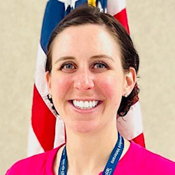
Dr. Joleen Sussman and Kelly Soberay will present effective suicide prevention interventions for persons with dementia and their loved ones. They will discuss appropriate resources and education for persons with neurocognitive disorders and their caregivers.

Preventing Suicide Among Women Veterans: Research Findings to Inform Gender-Sensitive Care
May 12 2021 2:00 ET Claire Hoffmire, PhD and Lindsey Monteith, PhD
Dr. Claire Hoffmire and Dr. Lindsey Monteith will present considerations for a gender-sensitive approach to suicide risk assessment and intervention with women Veterans. They will discuss findings that indicate there are important gender differences in Veterans' risk factors for suicide, including access to lethal means (e.g., firearms).

Categories
Special PopulationsResponding to Suicidal Ideation or Self-harm from a Dialectical Behavior Therapy (DBT) Perspective
April 14 2021 2:00 ET Laura Meyers, PhD, ABPP
Dr. Laura Meyers will review how to treat suicidal ideation and self-harm from a DBT perspective. Following this live, knowledge-based virtual training, clinicians and health care teams will be able to: identify how to effectively respond to suicidal statements from a DBT perspective, define the difference between "operant" and "respondent" behaviors and discuss the pros and cons of hospitalization.

Categories
Risk ManagementCoordinating Across All Levels of the Continuum of Mental Health Care: The Role of VCL with Each of You
March 10 2021 2:00 ET Dr. Lisa Kearney
This month's SRM lecture will highlight the elevated risk of suicide in the Veteran population and the importance of engagement services after a call to VCL as a method of suicide prevention.
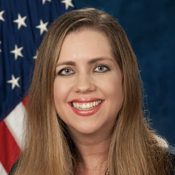
Categories
Community ApproachesInvolving Family and Loved Ones in Suicide Prevention Efforts
February 10 2021 2:00 ET Drs. Kathryn Barrs, PsyD and Barbara Dausch, PhD
This month's SRM lecture will discuss how to clinically involve loved ones in the prevention of suicide for individuals at increased risk. Presenters will also share available resources in VA and the community to support Veterans and their loved ones.

Categories
Family/CaregiversTBI, Suicide, and Evidence-Informed Intervention Strategies
January 13 2021 2:00 ET Dr. Lisa Brenner, Director, VA Rocky Mountain Mental Illness Research Education and Clinical Center
This month's SRM lecture is presented by Dr. Lisa Brenner the factors that lead to increased risk of suicide in Veterans with traumatic brain injury (TBI) and discuss evidence-informed intervention strategies that must be implemented to address risk and prevent suicide.

Treating PTSD in the Context of Suicidality
December 9 2020 2:00 ET Drs. Sadie Larsen, PhD and Lisa-Ann Cuccurullo, PsyD
In this month's SRM lecture, Drs. Larsen and Cuccurullo review evidence of how suicidality is affected by trauma-focused treatments, discuss when to provide trauma-focused treatments in the context of suicidality, and how to successfully manage both in treatment.

Understanding and Addressing Suicide Among Homeless and At-Risk Veterans
November 18 2020 2:00 ET Drs. Ryan Holliday and Jillian Weber and Mr. Shawn Liu, LCSW
In this month's SRM lecture, Drs. Holliday and Weber and Mr. Liu review risk factors and discuss best practices for assessment and intervention specific to the homeless Veteran population.

Categories
SDOHWelfare Checks and Therapeutic Risk Management
October 14 2020 2:00 ET Hal Wortzel, MD and Edgar Villareal, PhD
This month's SRM lecture will apply the principle of therapeutic risk management as a patient-centered approach to scenarios prompting consideration for welfare checks.

Categories
Risk ManagementProviders Working in Suicide Prevention: Personal Perspectives on Self-Care, Sustainability and Post-Traumatic Growth
September 9 2020 2:00 ET Monireh Moghadam, LCSW and TJay Wiechman, RN
This month's SRM lecture will focus on the importance of self-care and sustainability for providers and healthcare teams who work with individuals who are at higher risk for suicide. Listen as one presenter reflects on the experience of post-traumatic growth, recovery, and healing in the wake of a colleague's death by suicide.

Categories
Staff ResilienceSuicide Postvention
August 12 2020 2:00 ET Dr. Sarra Nazem
This month's SRM lecture is presented by Dr. Sarra Nazem who will discuss suicide postvention, the organized response that occurs after a suicide loss and is an essential element of a comprehensive suicide prevention approach. By providing immediate and ongoing support to those impacted by a suicide loss, suicide postvention policies and practices serve an important function in reducing risk and promoting healing after suicide. Despite its importance, many providers report a lack of suicide postvention education and awareness.

Categories
PostventionA Patient-Centered Approach to Lethal Means Safety with Veterans
July 8 2020 2:00 ET Dr. Ryan Holliday & Dr. Lindsey Monteith
This month's SRM lecture is presented by Dr. Ryan Holliday and Dr. Lindsey Monteith who will discuss Lethal Means Safety (LMS) — a strategy for preventing suicidal self-directed violence by reducing access to lethal means (e.g., excess medication, firearms) when suicide risk is elevated. The training will provide guidance on how to apply a patient-centered approach to assess lethal means access, particularly with Veterans.

Using Chain Analysis to Assess and Intervene on Suicidal Ideation and Behavior
June 10 2020 2:00 ET Dr. Sean Barnes & Dr. Lauren Borges
This month's SRM lecture is presented by Dr. Sean Barnes and Dr. Lauren Borges who will discuss using chain analysis as a critical strategy for therapeutic risk management of suicidal ideation and behavior. The focus will be on the purpose of chain analysis and discovering new strategies for intervening on suicidal ideation and behavior, the impact of positive and negative reinforcement, and how to apply the components of the chain as an intervention strategy.

This month's SRM Lecture is presented by Drs. Harvey and McGarity who will discuss the important role of safety planning as an essential tool in suicide prevention efforts. The focus will be on the basics and reasons for safety planning, the concept of the suicide risk curve, and how best to meet the needs of Veterans in unique circumstances.

The inaugural SRM Lecture is presented by Drs. Matarazzo and Wortzel who will discuss the necessary role of suicide risk assessment in mental health practice. The focus will be on therapeutic risk management, a patient-centered model, that will ensure optimal care for Veterans.




















